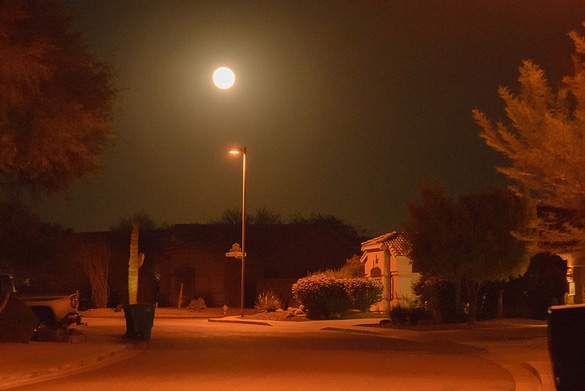Which is of course the perfect analogy for what the Christian is to do in our dark world: We are to reflect the light of the Son.
It’s not an easy task, is it? And we’re nowhere near as reliable as the moon, which reflects the light of the sun almost constantly, even when clouds obscure our view of it.
How does the moon do it? By almost always being in a position to receive and reflect the sun’s light.
What does this suggest for Christians?
Maybe this: That we are not to try to shine in our own right, but to remain in position to receive and reflect the light of Christ. “I am the light of the world,” He said, as recorded in John 8. “He who follows Me shall not walk in darkness, but have the light of life.”
How should this play out in our lives?
I suppose that will be different for each of us, different perhaps from day to day and even minute to minute. But take note of some important lessons that we might learn from the moon’s relationship with the sun.
For instance, note the passive tense in the description above: The moon does its job by being in position to receive and reflect the sun’s light – not by positioning itself to do so. It simply obeys the laws that the Creator established in the beginning.
Does this tell us that if Christians obey God’s commands and precepts, as detailed in the Bible, we will usually be in position to reflect the Son’s light?
I say “usually,” because there is one exception to the moon’s constant reflection of the sun’s light: the lunar eclipse. It happens when the earth is positioned between the moon and the sun, blocking the moon from the sun’s light.
Is that perhaps an acknowledgement that our obedience will never be perfect in this life, a reminder that when we allow the world to block His light, we will ourselves be blanketed in darkness? Or does it suggest that no matter how obedient we are, there will be times in our lives when we as humans won’t be up to the task?
The Lord has revealed so much of Himself to us in His creation, and so much about ourselves; the moon is just one more thrilling example. If you’d like to take a closer look at what it has to teach us, check out Our Created Moon: Earth’s Fascinating Neighbor, written by Dr. John Whitcomb and Dr. Don DeYoung.
In the meantime, ponder the opening lines of King David’s Psalm 19: “The heavens declare the glory of God; and the firmament shows His handiwork. Day unto day utters speech, and night unto night reveals knowledge. There is no speech nor language where their voice is not heard.”
We would do well to pay attention.

 RSS Feed
RSS Feed